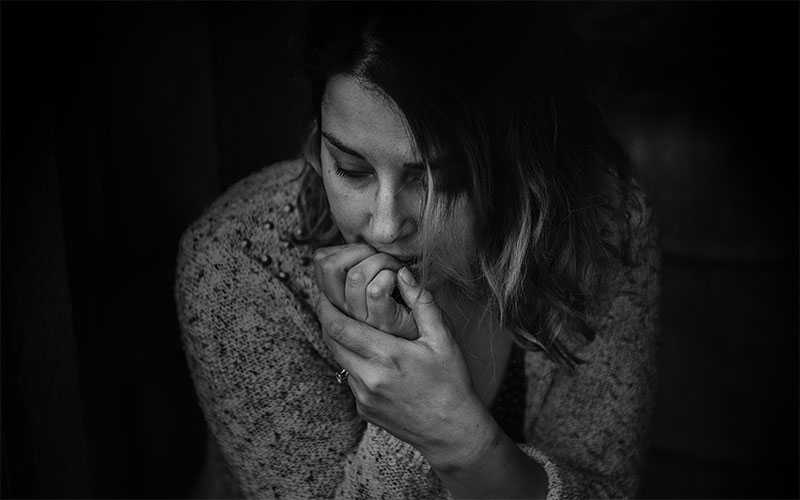Becoming a new mom is one daunting chapter in any woman’s life. Especially for first-time mothers, the pressure and expectations to take care of a newborn can truly be overwhelming. Maybe you’re wondering, “what is postpartum depression?”
It’s a common brief period of stress defined by emotional disturbances that include the feeling of dissatisfaction, mood irritability, sleep troubles, and anxiety. In fact, in the US alone, this is experienced by up to 4 out of 5 women in the first few days after childbirth.
However, if you are experiencing these negative feelings for a longer period of time, it may be considered as a manifestation of postpartum depression.
Story Time
When I had my huge basketball belly with Samuel I couldn’t wait to finally have him so that I could do all my regular things, and go on outings with him. I never really realized how important and sacred your postpartum period is not only for your recovery but also to help with breastfeeding.
Those first few days I felt so overwhelmed and frustrated….just the life change of having a baby is hard to deal with and on top of that all the changes that are going on inside your body. Being honest and open with my family and husband about how I was feeling made a big difference.
I took my focus off trying to be myself again (known as “bouncing back after pregnancy”) and instead embraced my postpartum depression for what it really is; the fourth trimester of your pregnancy, and really took the time to bond with my baby, heal physically and emotionally, and work on learning to breastfeed.
What is Postpartum Depression?

Postpartum depression (PPD) is a type of depression and anxiety disorder that characterizes after giving birth. It is considered a serious mental health condition that affects an estimated 13-19% of women post-pregnancy. It typically exhibits symptoms a few weeks after childbirth and up to the first year of the baby.
Women with postpartum depression experience symptoms of constant and extremely low moods. This is accompanied by feelings of depression, worthlessness, guilt, despair, and difficulties concentrating. Usually, it gets mistaken to be just some “baby blues”. But if you’re feeling this prolonged emotional stress, you might need to consider it as a more serious mental health problem.
Other symptoms of postpartum depression you may be wary of include:
- Depressive moods and serious mood swing
- Heightened emotions, especially in crying
- Lack of interest to bond with baby
- Withdrawing from loved ones
- Extreme appetite — whether eating too much or too little
- Loss of sleep or too much sleeping
- Overwhelming fatigue
What Happens In Your Body That Causes Postpartum Depression?
The factors that contribute to postpartum depression may vary from one person to another. But according to many researches, your neurochemistry, hormones, and life experiences can cause the shift in your mental health.
Since being pregnant and giving birth are very intense (and sometimes traumatic) events, this new life chapter can make you feel sad, worried, tired, and anxious.
With your new external environment, you are also more prone to more intense fluctuations in your hormones, such as your estrogen and progesterone. During pregnancy, these are heightened to help in the development of the uterus and placenta.
Although once you have delivered the baby, these hormones take a dive within just a few days. The sudden hormonal changes coupling with other external factors can lead to mood disturbances, which can put new mommyz at greater risk for developing postpartum depression
How Does It Affect Breastfeeding?
Postpartum depression and breastfeeding have been shown to have correlating effects. Often, mothers with postpartum depression may not be able to feel the pleasure of having a new baby and have low interest in taking care of her family.
Some new moms also go through a period of grieving because they feel as if they have given up their old identities. The lack of support during the early stages of motherhood can trigger postpartum depression as well. Due to stresses in a new mother’s life, they feel unmotivated to nurse their babies.

While postpartum depression may reduce the rates of breastfeeding, several studies have also shown that not engaging in breastfeeding may also increase the risk of postpartum depression.
In fact, it was reported that women that do not breastfeed are more likely to have higher levels of depression and anxiety compared to those who are engaging in breastfeeding. Subsequently, newer studies have also suggested that breastfeeding offers a protective aid against postpartum depression.
How Can You Fight It?
Firstly, any new mom experiencing postpartum depression shouldn’t feel that she is alone. Know that you should not be guilty and that things will be better. The first step to any treatment is by getting screened properly. It would be best to begin checking during pregnancy and do regular screening post-childbirth.
Treatment for postpartum depression can be done through the following:
- Individual counseling
- Joining support groups
- One-to-one peer support
- Medications
- Combination of these methods

New moms who are overwhelmed with the stress of raising a baby can improve their mental health with a few techniques.
1. Give yourself some “me-time”
It’s important to give yourself a break from time to time. During your baby’s nap times, try doing some breathing and meditation exercises. Decompress by allowing yourself to enjoy some leisure activities like talking a walk, having a nap, watching a movie, or doing yoga.
2. Get active
Research suggests the antidepressant effect of exercise for women with postpartum depression. Start with something easy, like taking a walk with your baby on a stroller. According to a study on mental health and physical activity, walking was assessed to be one of the most efficient exercises that significantly eases depression.
3. Consume a healthy diet
Although it’s not the ultimate solution, nutrition plays a vital key in making you feel good. Eating clean and healthy foods can translate to how your body feels. Follow a diet that consists of whole foods, fresh vegetables and fruits, and lean proteins.
4. Breastfeed your baby
As mentioned earlier, breastfeeding works wonders not only for your baby but for your own mental health as well. Emerging research shows that breastfeeding actually offers a protective benefit against postpartum depression.
Breastfeeding Difficulties for First-time Moms
Many first-time moms find breastfeeding stressful due to many reasons. Among them are the following:
Breastfeeding is hard and consumes so much time.
Truth be told, breastfeeding can take up most of your days, especially in your baby’s first few months. Because of this, new moms find it extremely draining and feel as if feeding their baby has taken control over their lives. That’s why more than half of women quit after the first month of breastfeeding.
Breastfeeding hurts
If done correctly, breastfeeding is not supposed to hurt. However, if the baby isn’t latching securely, breastfeeding can be painful. A shallow latch is common and happens when your baby only latches on the nipple and failing to attach to the breast. This doesn’t allow your baby’s tongue to reach the milk ducts and thus making it difficult to get enough milk.
Some moms think they are not producing enough milk for their baby.
First-time moms often make the mistake of not knowing that they are producing enough milk. It’s possible that this may be caused by a medical issue. However, in most cases, almost 95% of nursing moms are able to make enough milk. Most of the underlying issues with low breastmilk production can be treated successfully through support and several breastfeeding techniques.
3 Things You Can Do To Fight It
Tackle the difficulties of breastfeeding day by day.
It’s expected that it will be difficult to adjust to nursing your baby the first week or two after giving birth. Breastfeeding is a learned skill and you’re bound to hit some learning curves along the way. Traditionally, it takes about three to five weeks until a woman gets the hang of breastfeeding.
Consult a breastfeeding specialist
Pain from breastfeeding can be solved by following the techniques to achieve proper latching. The proper latch can also assure that your baby is getting the most out of your breastmilk. Reach out to your lactation consultant if you’re experiencing pain while nursing. The specialist will teach you the best positions for a painless breastfeeding journey.
Treat your nipples well
Soothe, heal, protect, and moisturize your nipples with an organic nipple balm. This provides instant relief while breastfeeding as it eases the friction and discomfort from breastfeeding or pumping.
3 Support Communities You Can Join
Postpartum depression can be best overcome by supportive environments. Join a community of moms and mentors that will help you through your struggles and challenges as a new parent. Connect with these few organizations you can join:
- La Leche League International advocates a world without barriers to experience the love and wisdom found in breastfeeding. They have local group meetings across the US to help women in the breastfeeding journey.
- MOBI: Motherhood International is an online support group targeted for mothers experiencing breastfeeding problems.
- The Women, Infants, and Children (WIC) Program also provides help to nursing women who are below a certain income threshold.
Conclusion
Postpartum depression is a reality many first-time moms face. Despite the challenges, prevention and early screening are essential to detect this mental health condition. A variety of treatments, such as counseling, support groups, medications, or a combination of methods, can be done to fight postpartum depression. In addition, a possible solution can be found through breastfeeding. Emerging studies have shown that breastfeeding offers a protective benefit against postpartum depression.
Breastfeeding during postpartum depression can be especially challenging. Mothers often complain about the lack of time, the pain of nursing, and the stress of not producing enough milk. Through support and the right techniques, this can be addressed. You can also join support groups online or in your local communities to help you through your postpartum depression and breastfeeding journey.





